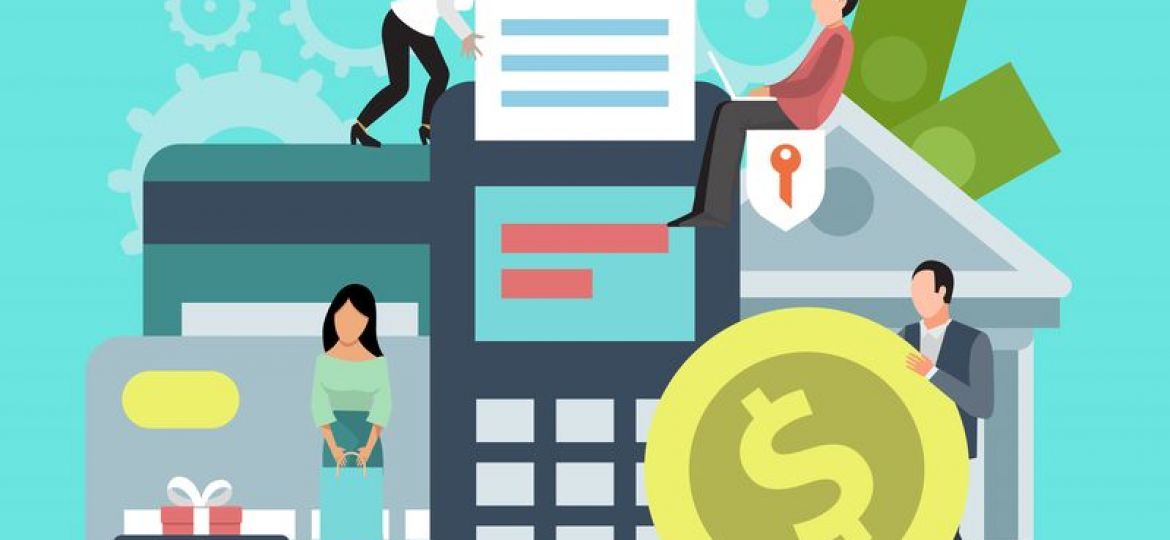
 Bankruptcy comes with a lot of assumptions and misconceptions, many of which state that there’s no way to find success and financial freedom after you file. This is simply not the case. We’re here to tell you that it is possible to rebuild your credit profile and financial future after bankruptcy is filed. Below, we’re covering some of the top ways to rebuild your credit after bankruptcy, and how you can succeed in future large-scale purchases even after you file.
Bankruptcy comes with a lot of assumptions and misconceptions, many of which state that there’s no way to find success and financial freedom after you file. This is simply not the case. We’re here to tell you that it is possible to rebuild your credit profile and financial future after bankruptcy is filed. Below, we’re covering some of the top ways to rebuild your credit after bankruptcy, and how you can succeed in future large-scale purchases even after you file.
Rebuilding credit after bankruptcy
A large part of recovering financially from bankruptcy comes down to spending patterns. While it is possible to rebuild your credit score after successfully filing for bankruptcy, you will need to institute long-term spending changes to ensure that the spending habits that you’re making are helpful to your financial health in the long term.
Below are a few ways that you can begin to rebuild your finances after a bankruptcy case.
1. Keep an eye on your credit score
While this step seems simple, it can’t be overstated. Information is power, and keeping your eye on your credit score is vital to know exactly where you stand financially, and identifying the right next steps in your case. You won’t have to ruin your credit in order to stay in the know, though. There are several different free tools that can give you your FICO score, as well as the approximated scores across other scoring methods. We do want to note that FICO is among the most widely accepted, and is what many lenders reference to influence their spending decisions.
Tools to do this for free and without damaging your credit include:
- FreeCreditReport.com
- Credit Karma
- Experian
2. Authorized user credit-building strategies
After you file for bankruptcy, it isn’t likely that you’ll be able to get a personal line of credit in the immediate future. You’ll need to take the time to build up your score before having a solid chance at securing a credit card from any major lenders. If this is the case for you, you may consider pursuing an authorized user arrangement on someone else’s credit card.
This means that you can still make the purchases you need on the line of credit, but you will not have the same “security allowances” to modify the account as you would as the account administrator. If you choose to do this, we recommend doing it with a close family member who you have open communication with to minimize the risk of a poor outcome. Payments made on this account will show on your credit report, which is a great way to build your credit — especially if you’re able to keep your utilization low.
3. Stay financially consistent
Proper spending habits take time to put in place. One of the best things that you can do is to stay financially consistent, and focus on two things:
1. Making on-time payments for at least the minimum amount (try to pay a little over that number if you can).
2. Creating and sticking to a budget.
Ultimately, there is no “right” or “wrong” way to manage your finances, so long as you can meet your financial obligations. It may take time and a few different trial periods, but you will be able to create a budget that works for you, and allows you to make your payments on time and in the complete amount.
4. Begin your emergency fund
While this doesn’t directly impact your credit score, it definitely can help if you find yourself in financial hardship and are struggling to make on-time or complete payments… which can affect your credit. An emergency fund can be extremely helpful and is worthwhile to build — even if you can only contribute a few hundred dollars per month.
If you struggle with overspending, consider putting the money aside in a separate savings account with limited withdrawal periods per year. This can discourage frivolous spending, but will still allow you to have full access to the funds if needed for emergency expenses and to protect your credit score during the rebuilding process.
5. Keep your balance low
One of the biggest impacts on your credit score is utilization. By keeping your balance low, you’re able to avoid overuse and can keep a lower monthly payment, which can be extremely helpful if you’ve recently filed for bankruptcy.
Considering bankruptcy in Utah? We’re here to help
If you’re considering bankruptcy in Utah, the experts at Ascent Law want to help. Our lawyers have had decades of experience helping to successfully navigate complex bankruptcy cases, and will always fight for your needs and interests. We can assist through every step of the process, from administrative court processes to hearings and finalization. For more information and to book your free intro call today, please visit our website. We look forward to speaking with you soon!
